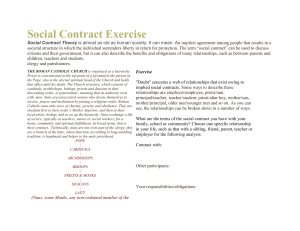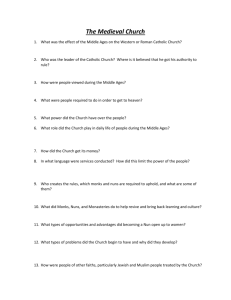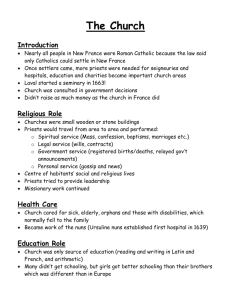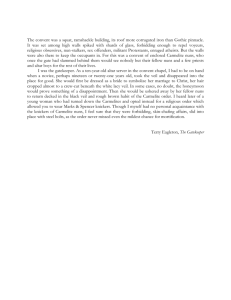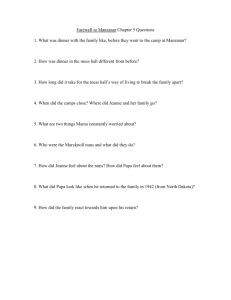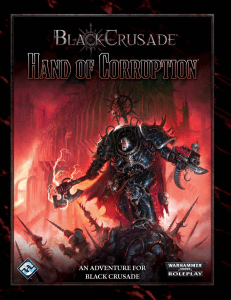Authority Outside the Church
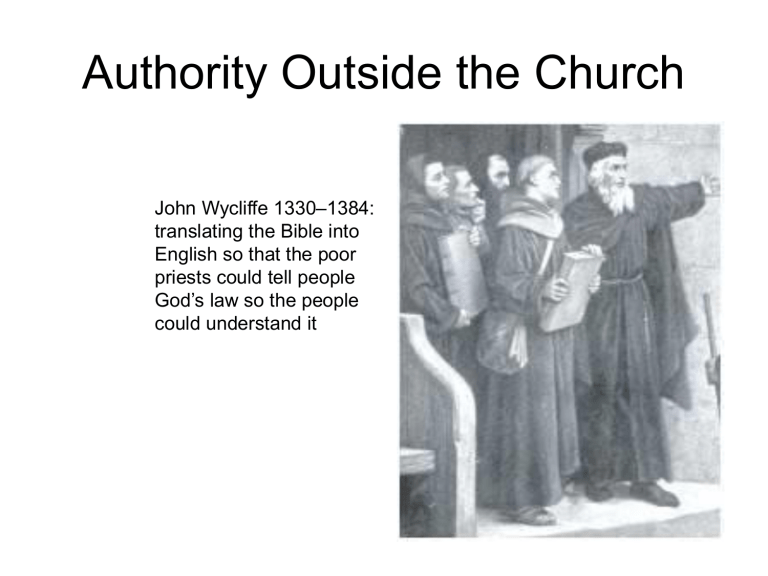
Authority Outside the Church
John Wycliffe 1330 –1384: translating the Bible into
English so that the poor priests could tell people
God’s law so the people could understand it
Authority Outside the Institutional Church
Troublesome nuns: the Beguines
• What is a Papal Bull?
• What was significant about the Bull Periculoso 1293 in terms of nuns and why was it necessary to institute
Church control of nuns’ lives?
Why so much trouble with the Church?
• Wealth and greed is always a good fallback when blaming the institutionalized church
• The 12 th century was another age of ferment and experimentation: Waldensians, Lollards,
Brothers and Sisters of the Free Spirit, Spiritual
Franciscans, Apostolici , Albigensians,
Joachimites, and flagellants
• “liberty” and “poverty” were watchwords for all these groups
Controlling those nuns
• The Beguines were
“not bound by vows, were not subject to papal enclosure, and did not totally renounce the possibility of marriage; their piety seems to have centered on the eucharist and the humanity of Jesus.”
(Mitchell, 1982)
• What’s a Church to do?
Veneration of Mary – co-opting an image
• The Church cast out heretics: Lollards,
Albigensians, and Free
Spirit(ers)
• Marian worship was taken by the Church, who then venerated her into its own dogma
• The Church kept control until the 16 th c.
Daddi - 1335
Stabat Mater – the mother was standing
More mystics and visionaries
Bridget of Sweden↓ Elizabeth of Hungary→
Saint Catherine of Siena – “a sheep outside the sheepfold”
Saint Catherine of Siena dictating her dialogues
–
Giovanni di
Paolo (1448?)
(1347-
1380)
Margery Kempe – a mottled legacy of ridicule, heresy and worship
Big time traveller – pilgrimages in
England, then to
Rome, Jerusalem,
Spain, Poland.
Contemporaries found her zeal
“excessive”. No word as to whether or not she was abducted from
Lethbridge and taken to the States c. 1373 – after 1438
1500s – institutional repression
• These groups appeared to usurp the functions of the institutional Church
• Women like Marguerite
Porete (? – 1310) just frankly scared them
• Her emphasis on “religion of inwardness” suggested a faith without need of theologians and rituals.
• Soul surrender to Love
The Woman Factor?
• Albigensians heretics “Kill them all: God will recognize his own” Arnald-Amalric papal legate
– They saw that women could be the equal of male believers: perfecta
• Lollards 13 th & 14 th c.
– They allowed devout female followers to read and preach
• Waldensians
– Women could take the sacrament in own language
• 1215 forward -
Inquisition
Siege of Bezier 1205-1214

